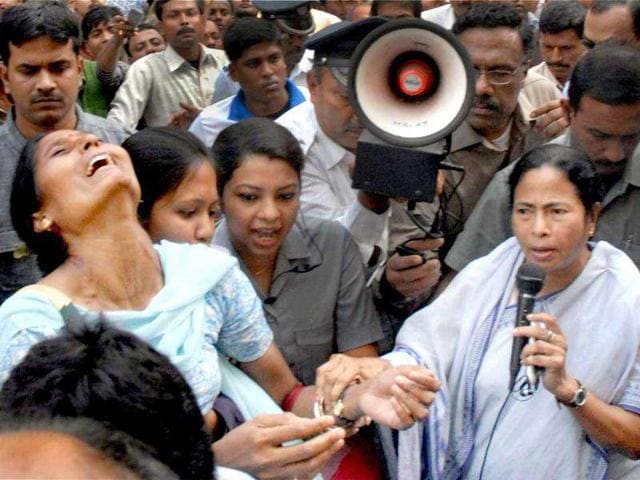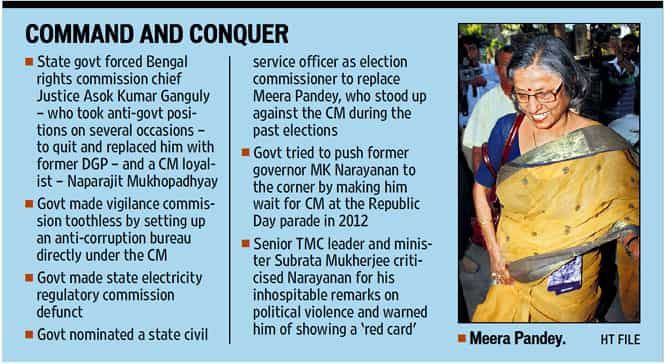Before polls, Mamata chaining up all watchdogs in the state
Bengal chief minister Mamata Banerjee and her party, the Trinamool Congress, are in search of a permanent state of victory – on every front, on any count and at any cost -- it seems.
Bengal chief minister Mamata Banerjee and her party, the Trinamool Congress, are in search of a permanent state of victory – on every front, on any count and at any cost – it seems.

Be it elections or day-to-day running of the state or suppressing political dissidence or immaterial issues – in Bengal’s perspective, so to say— such as rape and murder, the verdict should come from the CM’s residence or, at the most, from Nabanna, the new seat of power of the state government.
Finally, Banerjee has successfully replaced the party that believes, at least on paper, in dictatorship of the proletariat by her own brand of dictatorship of the party boss. The latest manifestation is the appointment of a state civil service officer as the state election commissioner.
Banerjee had not had too pleasant an experience with IAS officer Meera Pandey, the last state election commissioner, who dragged the state government to court just before the panchayat polls. The TMC boss even said that had she a two-thirds majority in the assembly, she would have sacked Pandey.
So, this time, Banerjee is having her own man placed in the state election commission’s office to bring the checks and balance mechanism right under her thumb. The immediate provocation: Elections to 17 municipal bodies in the state were due in end-June.
Incidentally, the Left Front government – which also had a command-and-control obsession – amended the West Bengal State Election Commission Act in 2010, allowing the nomination of state level civil service officers. Banerjee just took the lead and made it work.
“The ruling party is targeting each and every constitutional body and appointing people who will just serve the party,” said former principal of Presidency College and a Political Science teacher, Amal Mukhopadhyay.
he opposition, however, argues there are at least three other examples, where such offices have been brought under the control of the executive, cocking a snook at the role constitutional bodies play in a democracy.
The most spectacular example, perhaps, is the forced exit of state human rights panel chief Justice (retired) Asok Kumar Ganguly, who was targeted relentlessly by the TMC for standing up to the administration.
Since then, the government has nominated a ‘friendly’ rights panel chairman, former state police chief Naparajit Mukhopadhyay, although the SHRC Act clearly says the chairperson has to be a former chief justice of a high court. The rights panel has shown little activity in the high-profile cases this year.

CPI(M) state committee member Robin Deb, who liaisons with the state and central poll panels, said, “The CM doesn’t want to have any opposition either on the political front or in the administration. And that’s why she is appointing only those who are close to her.”
Another instance of Banerjee’s insistence on having a free run is the state of the electricity regulatory commission that approves power tariffs. Although its chairman, former home secretary Prasad Roy, completed his tenure on September 13, no new appointment has yet been made.
The selection committee chose former DVC chairman RN Sen, but the absence of a vigilance clearance has held up the appointment.
The third remarkable tale is that of the state vigilance commission. The CM brought IPS officer KS Ramasubban from Delhi and made him the vigilance commissioner. But in four months, the government changed its tack by setting up an anti-corruption bureau under the state police.
Pradip Bhattacharya, immediate past president of the state Congress, said “She worships the concept of absolute power. She has always displayed scant respect for any constitutional authority.”





